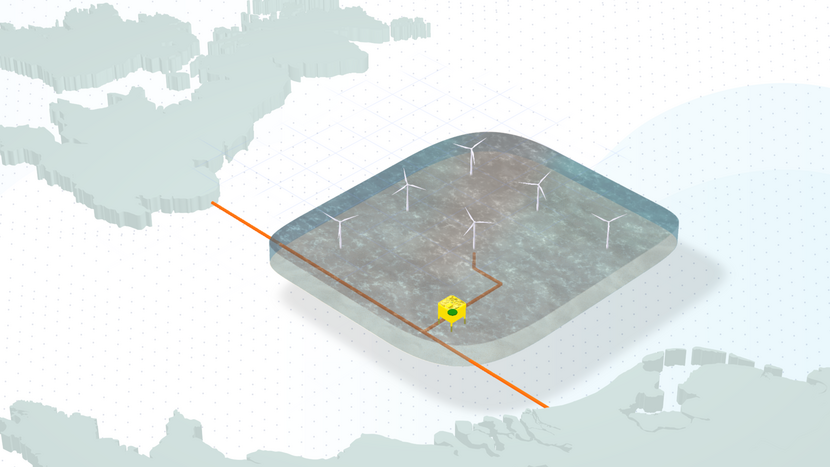The Netherlands and UK expand energy collaboration with new electricity link
Speaking at the North Sea Summit in Oostende today, Announced today at the North Sea summit, Dutch and British Ministers jointly announced plans for a first-of-its-kind electricity link to connect offshore wind between the Netherlands and the United Kingdom.
Enlarge image
Dubbed ‘Lion Link’, the interconnection aims to support decarbonisation, market integration and strengthen security of supply. Connecting offshore wind via the first cross-border direct current cable of this size would be an important next step towards an integrated offshore grid in the North Sea.
LionLink is a multi-purpose interconnector, which is designed to link a Dutch offshore wind farm of 2 GW to both countries via sub-sea interconnectors. This multi-purpose interconnector aims to make more efficient use of the infrastructure, accelerate the delivery and integration of offshore wind, whilst mitigating the impact on coastal communities with fewer individual connections and reduced infrastructure.
Minister Rob Jetten, Climate & Energy: “With the North Sea becoming the largest supplier of green electricity for the Netherlands and large parts of Europe, we are ready to expand the interconnection between the two countries. LionLink provides close to 2 gigawatts of electricity to both countries, enough to power 2 million households. This new connection further boosts energy security and energy independence in Europe. Close collaboration on offshore wind energy and interconnection amongst the North Sea countries is imperative. So in case there is a surplus of wind generated electricity, it can be shared instantly to locations with a shortage of power, and vice versa.”
Energy Security Secretary Grant Shapps: “Whether it’s in South Korea and Japan which I visited recently, with our northern European neighbours or elsewhere, UK PLC is blazing a trail, providing world-leading expertise to boost energy security and independence around the world – all while consigning the likes of Putin and his hold on global energy markets to the dustbin of history . Today’s new LionLink interconnector project is a key part of this, using our strong and historic ties with the Netherlands to boost our trade of cheap, clean energy across the North Sea – enough to power more homes than in Greater Manchester and Birmingham combined – for the benefit of both nations. And ultimately, this will help cut people’s bills into the bargain. And as we discuss this and other ways to work together with our European neighbours, I’m proud to have the best of British business with me to do it, ensuring they are first in the queue to help achieve these aims and create the green jobs for the future while they do it.”
The EU and UK have an ambitious combined target for offshore wind of about 120GW by 2030 in the North Sea – a major contribution to both energy security and climate targets. The Netherlands will establish about 21 GW offshore wind around 2030 and studies whether 50 GW in 2040 and 72 GW in 2050 is feasible considering physical space, ecological impact and sufficient demand. The United Kingdom aims to establish up to 50 GW offshore wind by 2030.
Manon van Beek, CEO TenneT, said: “It is our conviction that offshore hubs configured in a meshed DC grid must form the backbone of the North Sea powerhouse. This is a view that is increasingly shared, and for us, it is more than a vision of the future. In fact, we are already doing it by kicking off this ground-breaking LionLink project right now. It is a first step and a great opportunity to learn as the offshore grid takes shape.“
Ben Wilson, President National Grid Ventures, said: “Connecting wind farms to multiple markets simultaneously is a game changer for energy infrastructure and brings us one step closer to realising the enormous green energy potential of the North Sea. Not only can we deploy every spare electron where it is needed most, we can help to reduce the impact of infrastructure on coastal communities. We now need the right political, legal and regulatory framework to make it happen and establish a mutually beneficial North Sea grid to deliver a cleaner, fairer, more secure and more affordable energy future for British and European consumers.”
Originally published at https://www.government.nl/latest/news/2023/04/24/the-netherlands-and-uk-expand-energy-collaboration-with-new-electricity-link




